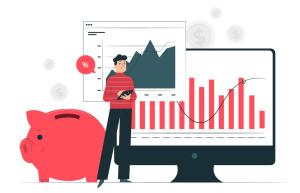Introduction
In today’s world, unexpected expenses can arise at any moment, from car repairs to medical emergencies. During such times, having access to quick cash can be a lifesaver. Personal loans serve as a valuable financial tool for individuals seeking immediate funds to cover various expenses. In this comprehensive guide, we’ll delve into everything you need to know about personal loans, including their benefits, potential drawbacks, and how to make the most of them.
What are Personal Loans?
Personal loans are unsecured loans that allow borrowers to access funds without providing collateral. Unlike mortgages or auto loans, which are tied to specific assets, personal loans provide flexibility in how the funds are used. Whether you need to consolidate debt, cover medical bills, or finance a home improvement project, a personal loan can offer the financial assistance you require.
Pros of Personal Loans:
- Quick Access to Funds: Personal loans typically have a straightforward application process, and funds can often be disbursed within a few days, providing swift relief during emergencies.
- No Collateral Required: Unlike secured loans, personal loans do not require collateral, making them accessible to individuals who may not have valuable assets to pledge.
- Flexible Use of Funds: Borrowers have the freedom to use personal loan funds for various purposes, ranging from debt consolidation to home renovations, giving them control over their financial priorities.
- Fixed Interest Rates: Many personal loans come with fixed interest rates, providing predictability and stability in monthly payments throughout the loan term.
Cons of Personal Loans:
- Higher Interest Rates: Compared to secured loans, such as mortgages or home equity loans, personal loans often carry higher interest rates, especially for borrowers with less-than-perfect credit.
- Origination Fees: Some lenders charge origination fees, which can add to the overall cost of borrowing. It’s essential to factor in these fees when evaluating loan options.
- Potential Impact on Credit Score: Applying for a personal loan results in a hard inquiry on your credit report, which may temporarily lower your credit score. Additionally, missing payments or defaulting on the loan can have long-term consequences for your creditworthiness.
- Risk of Overborrowing: Easy access to funds through personal loans may tempt individuals to borrow more than they can comfortably repay, leading to financial strain in the future.
How to Make the Most of Personal Loans:
- Assess Your Financial Situation: Before applying for a personal loan, evaluate your financial needs and borrowing capacity. Determine the amount you need to borrow and create a repayment plan that fits your budget.
- Compare Lenders: Research multiple lenders to find the best terms and interest rates for your financial profile. Consider factors such as loan terms, APR, and customer reviews to make an informed decision.
- Review the Fine Print: Carefully read the loan agreement, including any fees, penalties, or prepayment terms. Understanding the terms and conditions upfront can help you avoid surprises later on.
- Use Funds Wisely: While personal loans offer flexibility in use, it’s essential to prioritize responsible spending. Avoid using loan funds for discretionary expenses and focus on essential needs or debt consolidation.
- Make Timely Payments: Stay on top of your loan payments to maintain a positive credit history and avoid late fees or penalties. Set up automatic payments or reminders to ensure you never miss a deadline.
- Consider Alternatives: Explore alternative options, such as balance transfers, home equity loans, or negotiating payment plans with creditors, before committing to a personal loan.
Conclusion
Personal loans can serve as a valuable financial tool for individuals seeking immediate funds to address various needs and emergencies. By understanding the pros and cons of personal loans and implementing smart borrowing strategies, you can navigate the borrowing process effectively and achieve your financial goals with confidence. Remember to borrow responsibly, prioritize affordability, and always strive to improve your financial well-being.






